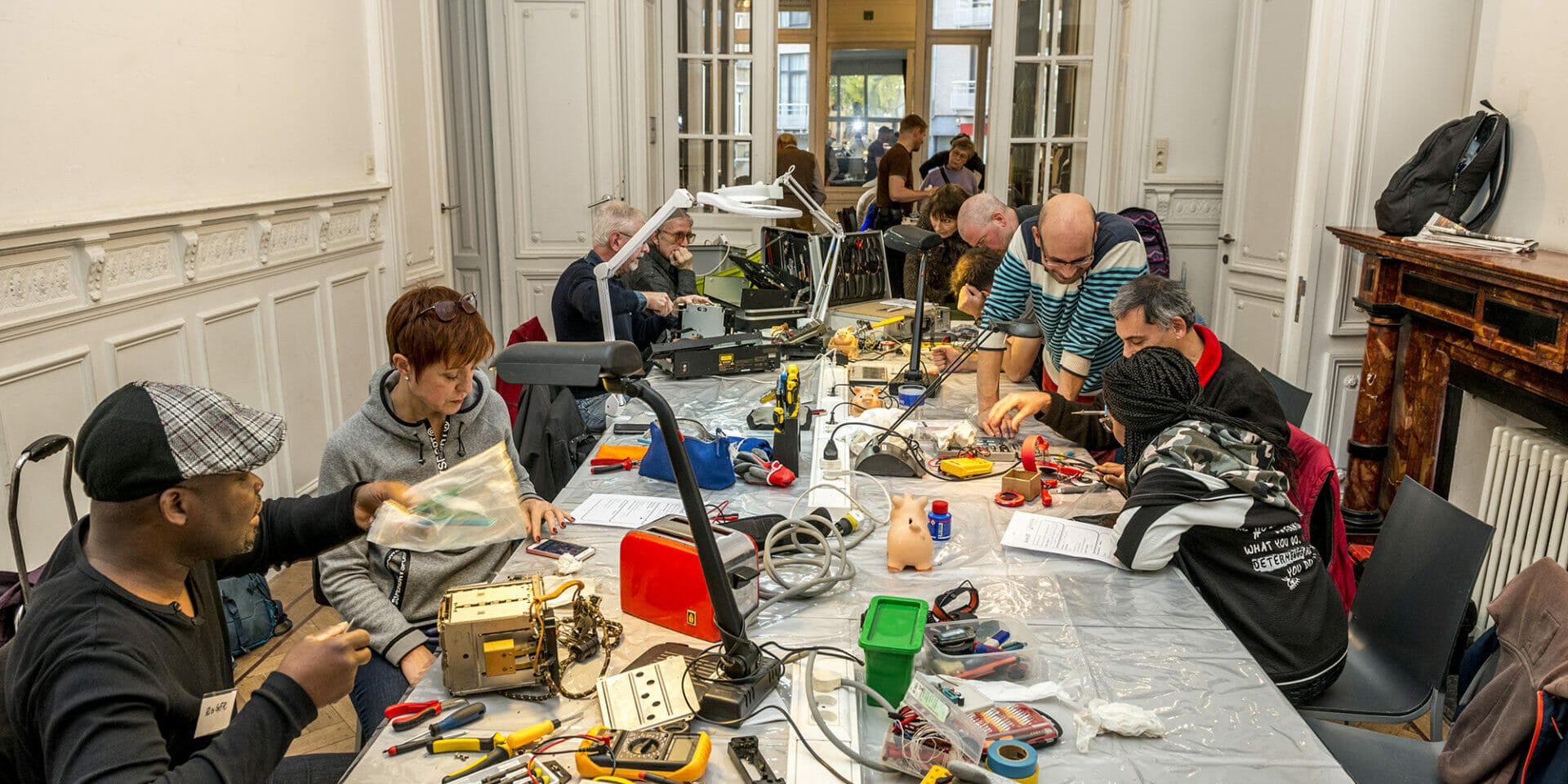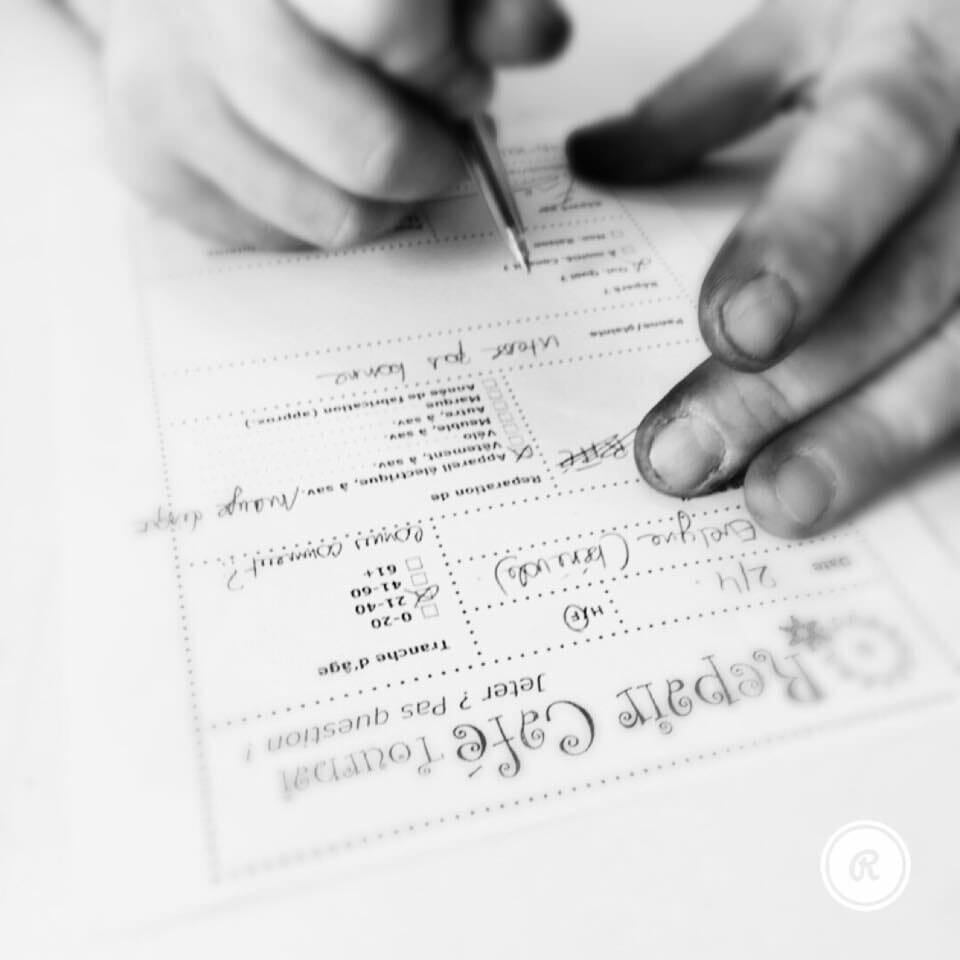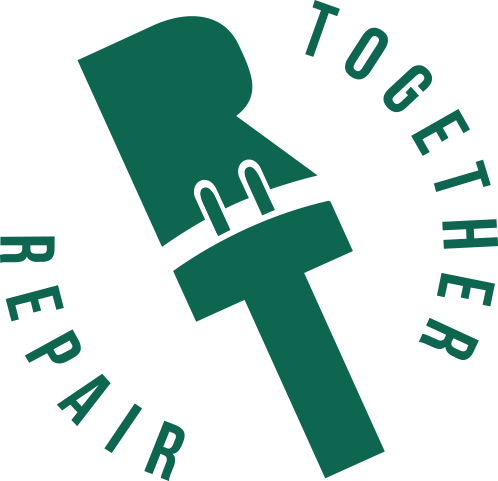Repairs Cafés in figures
The ecological, social and political impacts of the 218 Repair Cafés in Brussels and Wallonia are numerous and considerable.

In 2019, the Repair Cafés in Brussels and Wallonia represented :
165 active Repair Cafés, with an average of one event per month.
This represents approximately one Repair Café in every second municipality, and in 18 of the 19 Brussels municipalities.
Approximately 28.500 repaired objects, all categories combined: small household appliances, clothing, bicycles, computers, small furniture, etc.
More than 1.772 tonnes of CO2 prevented, thanks to the reuse of objects after they have been repaired, which keeps visitors from buying new ones.
This value also takes into account the carbon impact of the events.
More than 177 tonnes of waste prevented and got a second lease of life, therefore escaping unenviable end-of-life chains.
Data collection at the Repair Cafés
Many objects and people pass through the Repair Cafés. Repair Together wants to expand the collection of information about repairs and volunteering in its network.
To this end, Repair Together has partnered up with The Restart Project that collects statistics from the Repair Cafés and shares them to the Open Repair Alliance. Our association is also active in the Sharepair project which aims to develop repair-related databases.
What does the collection of repair data enable ?
The data collected at Repair Cafés can have a direct influence at the political level. It can for instance have an impact on the creation of ecodesign rules requiring the repairability of objects.

Each Repair Café can encode the data collected during its events. The figures presented below represent their data, which increases every day!
